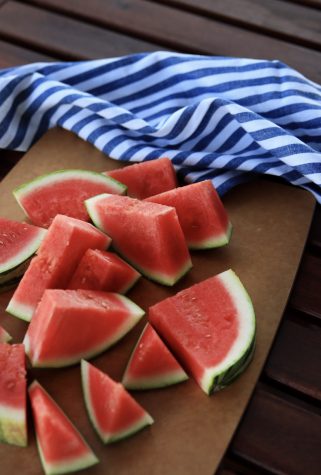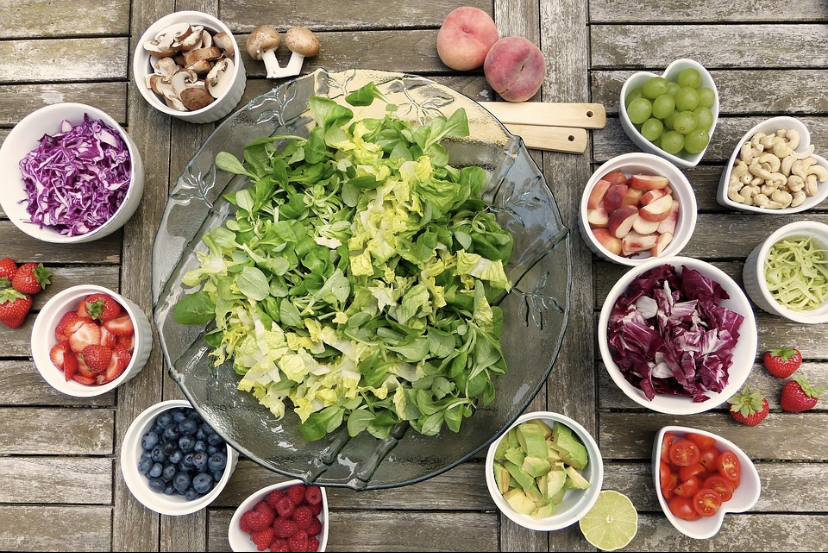Healthified Tik Tok Snacks: Healthy or Restrictive
October 10, 2022
Trigger Warning: Eating Disorders
If you have social media, chances are you’ve come across a few recipes for “healthified snacks” or versions of foods that claim to be healthier than the real deal. These foods come in all sorts of forms such as healthy Coke or mac and cheese with six hidden veggies for you to discover. The plot twist: there is no Coke or cheese involved in the making of these “healthy” foods. But that doesn’t stop influencers from raving about the discovery they’ve made.
The problem isn’t wanting to try these foods or even enjoying them regularly. The problem is claiming that these foods taste the same as the original because it defeats the purpose of eating the real versions. Consumers are often guilted into making restrictive food choices. “This one is better for you. This one doesn’t have sugar and it tastes exactly the same. Why don’t you care about your health?”

First up was the healthy Coke, which is made from sparkling water and balsamic vinegar. This recipe is meant to work with any flavor of sparkling water, proving that the focus is not to recreate the flavor of Coke. After trying this recipe, the results were unbelievably predictable. The healthy Coke’s flavor resembles that of vinegar and sparkling water. On the health level, this drink has less sugar than Coca Cola but it tastes like a glass of Easter-egg dye. If you enjoy the tart taste of vinegar then it’s the drink for you but it’s not what most would pair with their movie theater popcorn.
Watermelon is the universally loved summer fruit. It’s a perfect addition to a picnic or outdoor barbecue. Not only is watermelon delicious but it contains many important nutrients such as vitamins C and A which help our bodies heal and grow. The harm of these “healthy” snacks is that they discount the benefits that these foods provide for our bodies.

This brings us to the next alternative snack: cucumber with sugar on top. Just like watermelon, cucumber has many health benefits such as adding fiber and antioxidants to your diet. This recipe falsely claims that watermelon has too much sugar. In reality, there isn’t nearly enough fructose in watermelon to cause safety issues for the majority of people. Watermelon also contains polyphenols which have been proven to improve long-term blood sugar. While more impressive than the “healthy Coke”, the cucumber was a disappointing alternative to watermelon. It lacked both the signature sweetness and juice that makes the summer fruit so enjoyable.
Dessert alternatives are one of the most common healthified recipes which is why the healthy Reese’s rice cake trend was so successful. The claim is that you can make a healthy Reese’s Peanut Butter Cup by using your own ingredients at home instead of eating a candy bar that is highly processed. But there are many flaws to this idea. First of all, the chocolate, peanut butter, and especially the rice cakes needed to make this snack are highly processed ingredients. Not only is the claim that this snack is less processed untrue but there are benefits to eating processed foods. They are easier to access for those living in food deserts and provide opportunities to purchase foods that they cannot afford at unprocessed prices. This includes canned or frozen fruits and vegetables. Many processed foods also include additional nutrients that wouldn’t otherwise be added such as additional fiber. Processed foods can be part of a healthy diet and villainizing them is both damaging and unnecessary.
The Reese’s rice cakes were a delicious snack. It tasted similar to the original and the rice cakes added an interesting texture that isn’t present in the regular candy. While it’s an enjoyable snack, it’s still not the classic Reese’s Peanut Butter Cup.
While the claims around these snacks may seem innocent, the messages they’re pushing are incredibly harmful to teens. The most common age for eating disorder development is from 12-25 years old. Nearly 50% of Tik Tok users are 10-29 years old which means the age group most at risk to developing disordered food behaviors is the one consuming these messages the most.
Restricting the original versions of these foods not only creates extreme guilt around the consumption of them but it will increase the biological need to eat until satisfied. The solution is not to replace your favorite snacks, but to allow yourself to enjoy them instead.
Healthified recipes can lead to early disordered eating behaviors such as restriction of certain foods or food groups. They encourage setting limits and replacing the snacks that bring you joy. While it is perfectly acceptable to consume and enjoy these foods, it’s important for teens to be conscious of how these recipes affect their mindset around food. Tik Tok’s healthiest snacks were a letdown but they don’t taste nearly as bad as the messaging surrounding them.



